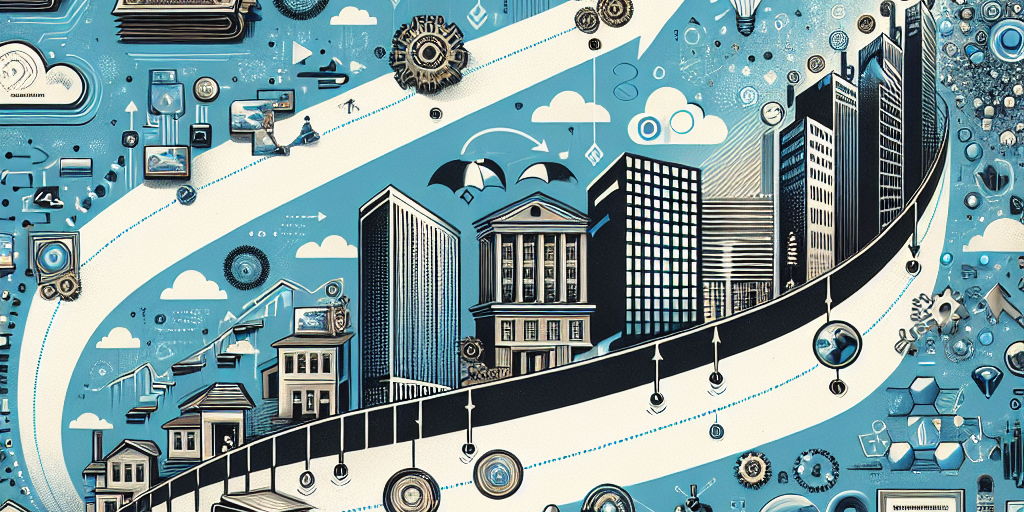The Evolution of Corporate Collections: What’s Coming Next?
In an ever-evolving financial landscape, the approach that corporations take towards collections has undergone significant transformations over the decades. Traditionally viewed as a rigid and often aggressive process, corporate collections have progressively shifted towards more adaptive, technology-driven, and consumer-centric strategies. As we examine the trajectory that collections have taken, it’s crucial to acknowledge what the future holds for this vital aspect of corporate finance.
The Historical Context
Traditionally, collection practices relied heavily on manual processes that involved extensive paperwork and a significant amount of time and human resources. Methods were often standardized, with little room for personalization or flexibility. The primary focus was on recovering debts as efficiently as possible, sometimes at the cost of customer satisfaction or long-term relationships.
The Technological Shift
With the advent of digital technology, the collections landscape began to change considerably. Automation technologies, such as robotic process automation (RPA) and artificial intelligence (AI), have enabled companies to streamline collection processes, enhance accuracy, and reduce costs. Automation facilitates routine tasks such as sending reminders, processing payments, and updating records in real time. In addition, predictive analytics allow companies to forecast customer behaviors and tailor their collection strategies accordingly.
Customer-Centric Approaches
In recent years, there has been a marked shift towards customer-centric collections. Corporations have recognized the importance of maintaining positive customer relationships, even when handling overdue accounts. This shift is characterized by a personalized approach to collections, where communication is tailored to individual customer circumstances and preferences. Flexible payment arrangements, empathetic communication, and transparent processes have become the norms, helping to foster trust and potentially increase recovery rates.
Legal and Regulatory Changes
Changes in regulations have also played a pivotal role in shaping current collection practices. Increasingly, governments and regulatory bodies are implementing laws designed to protect consumers and ensure fair treatment. This includes the imposition of restrictions on when and how companies can contact debtors, as well as promoting clearer disclosure regarding fees and penalties. Companies must stay informed and compliant, adjusting their strategies to meet new standards and avoid legal repercussions.
What’s Coming Next?
As we look to the future, several key trends are poised to redefine the corporate collections landscape:
-
Enhanced Digital Platforms and Integration: Future collections will likely see greater integration across digital platforms. Unified systems that incorporate customer relationship management (CRM), billing, payment processing, and analytics will provide a holistic view of each customer, facilitating more cohesive and efficient collection strategies.
-
Advanced Artificial Intelligence: AI’s role in collections will continue to grow. Machine learning models will become more sophisticated in predicting payment behaviors, optimizing communication strategies, and even negotiating settlements or payment plans autonomously.
-
Blockchain for Transparency: Blockchain technology could present new opportunities by offering unprecedented transparency and security. Immutable ledgers can streamline payment histories, reduce disputes, and build trust with customers wary of fraudulent activities.
-
Expansion of Self-Service Options: As consumers increasingly prefer managing their finances digitally, corporations will likely enhance self-service portals. These platforms will allow customers to handle their accounts, make payments, and set up payment plans at their convenience, potentially reducing the demand for direct contact from collection agents.
- Emphasis on Ethical Practices: With growing awareness of social responsibility, companies will prioritize ethical collection practices. This includes ensuring that all processes are transparent, respectful, and fair, aligning with broader corporate social responsibility initiatives.
Conclusion
Corporate collections are on the verge of a new era, driven by technological innovation, shifting consumer expectations, and evolving regulatory standards. Companies that successfully integrate these trends into their strategies will not only improve their recovery rates but also enhance customer relationships and brand reputation. As we move forward, it is clear that the future of collections will be increasingly digital, transparent, and customer-focused, reflecting broader trends in the global economy.







